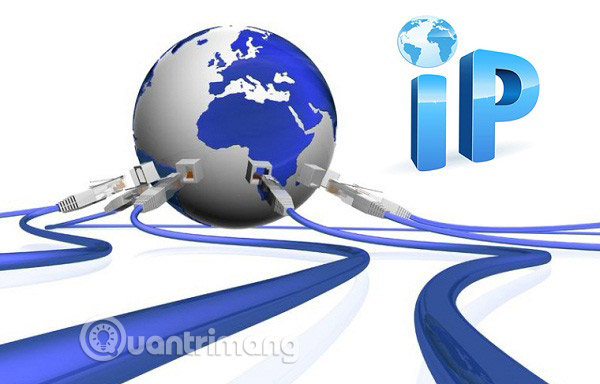What is a dynamic IP address?
What is a dynamic IP address?
Dynamic IP addresses are IP addresses automatically assigned to each connection or node of the network, such as smartphones, desktops, wireless tablets or anything else.
This automatic IP address assignment is performed by the DHCP server.
A DHCP server is assigned a dynamic IP address because it will often change at future network connections.
The "reverse" version of the dynamic IP address is a static IP address (an address is manually configured).

Learn about dynamic IP addresses
- What is a dynamic IP address?
- Where is the dynamic IP address used?
- What are the advantages of dynamic IP addresses?
- What are the disadvantages of dynamic IP addresses?
Where is the dynamic IP address used?
Public IP addresses are assigned to most home and business routers because ISPs are dynamic IP addresses. Larger companies often do not connect to the Internet via dynamic IP addresses. Instead, they are assigned static IP addresses and only have those static IPs.
On an internal network such as a home or business, where you use Private IP addresses, most devices can be configured for DHCP, which means they are using dynamic IP addresses. If DHCP is not enabled, each device in your home network will need to set up network information manually, so you may have done this before.
Note : Some ISP Internet service providers specify "sticky" IP addresses that change, less frequently than regular dynamic IP addresses.
What are the advantages of dynamic IP addresses?
To be honest, the main advantage of dynamic IP address assignment is the greater flexibility and ease of setup and administration that it offers compared to using a static IP address.
For example, a laptop connected to the network may be assigned a specific IP address and when disconnected, that address will be freely used by another connected device later, even when not the same laptop.
With this type of IP address assignment, there is little restriction on the number of devices that can connect to the network, since unconnected devices can disconnect and release available address groups for a device. other.
The alternative would be for the DHCP server to reserve a specific IP address for each device, in case it wants to connect to the network. In this situation, each device, among hundreds of devices, whether they are used or not, with private IP addresses can restrict access to new devices.
As mentioned above, another advantage of using dynamic IP addresses is the easier implementation of static IP addresses. No manual setup is required for new devices connected to the network. All you have to do is make sure DHCP is enabled on the router.
Since most network devices are configured by default to get an IP address from a group of available addresses, everything happens automatically.

What are the disadvantages of dynamic IP addresses?
Although very popular and technically accepted, the home network using a dynamic IP address for the router will raise a problem, if you are trying to access that network from an external network.
Suppose your home network is assigned a dynamic IP address by your Internet service provider, but you need to access the computer at home remotely (probably from a corporate computer).
Because most remote access programs / desktops require you to know the router's IP address to access the computer inside the network, but if the router's IP address changes periodically because it is a dynamic IP address You may have trouble connecting.
See more:
- Here's how to check if your IP address is static or dynamic
- How to check the computer IP address with TrueIP
- How to use Unblock fake IP IP on Chrome